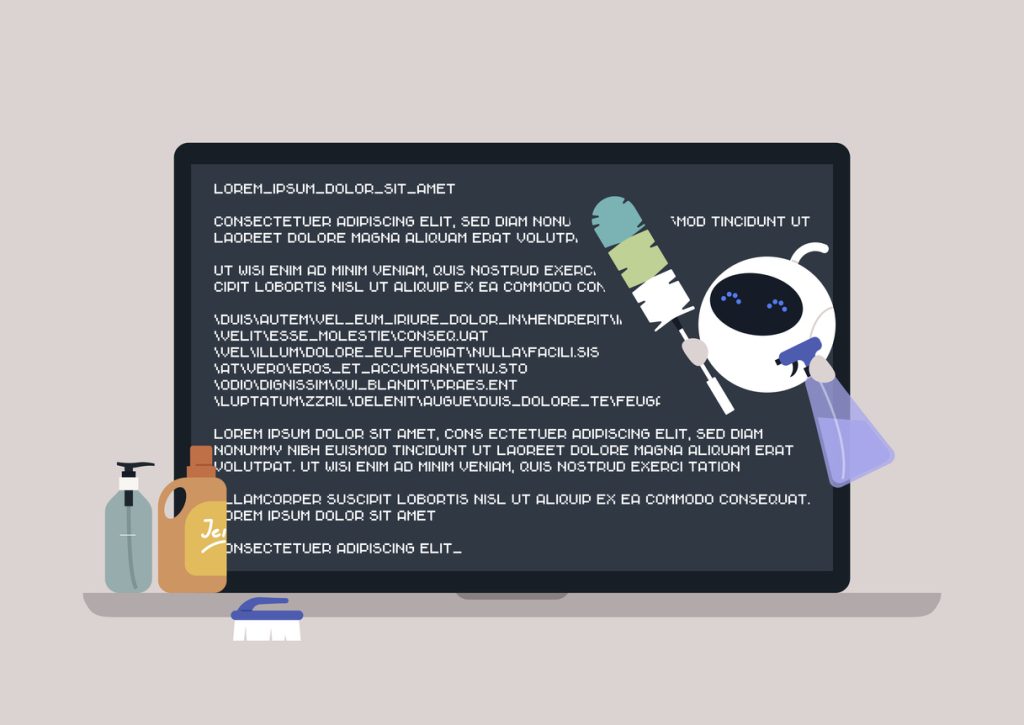How to Structure Your Content So AI Actually References Your Website

Something weird is happening with search behavior right now. People are skipping Google and going straight to ChatGPT for answers. When they do this, the AI doesn’t just make stuff up, it pulls from websites it considers credible sources.
Your website either makes that list or it doesn’t.
Companies are still playing the old SEO game while AI quietly rewrites the rules. The businesses paying attention are already adjusting their approach. Everyone else will keep scratching their heads about declining traffic.
Citations Are The New Currency

When someone asks ChatGPT about marketing strategies, it might cite three or four websites in its response. Those citations are pure gold. Think about it, you’re not competing against ten search results anymore. You’re one of three sources the AI trusts enough to recommend.
This changes everything about content strategy. SEO used to be about ranking high on search results pages. Now it’s about earning trust from AI systems that millions of people rely on for information.
The shift is subtle but massive. Users trust AI-cited sources more than traditional search results because the AI system essentially vouches for the information’s credibility.
The Real Story Behind AI Source Selection
AI systems aren’t randomly picking sources. They’re running sophisticated evaluation processes that most website owners don’t understand yet.
Structure Beats Creativity Every Time
AI systems scan for predictable patterns in content organization. They want clear hierarchies, logical topic progression, and consistent formatting throughout. Websites that jump around between ideas or bury important information in the middle of long paragraphs get skipped.
Your content architecture sends immediate signals about reliability. Well-organized information with clear headings and smooth transitions gets flagged as trustworthy. Scattered, poorly structured content gets marked as unreliable.
Real Expertise Shows Up In The Details

Forget about generic industry overviews. AI systems reward depth over breadth. A contractor who writes about specific building codes with exact measurements and local regulations will beat a general home improvement site every time.
The systems recognize genuine knowledge through specific details, accurate technical information, and industry terminology used correctly. Surface-level content that could apply to any business in your industry won’t cut it.
Facts Get Checked Constantly
Here’s where lots of websites fail without knowing it. AI systems cross-reference everything against their training data. Old statistics, unsupported claims, or information that contradicts established facts gets filtered out immediately.
That marketing stat from 2018 isn’t just outdated, it’s actively damaging your credibility. AI systems flag inconsistent or old information as unreliable and move on to fresher sources.
Content Approaches That Actually Work
Getting AI citations requires rethinking how you create content from the ground up.
Front-Load Your Best Information
Stop saving the good stuff for the end. AI systems scan opening paragraphs for citation-worthy content. If they don’t find specific, useful information quickly, they’re gone.
Instead of “Social media can be challenging for businesses,” write “Companies posting daily on Instagram see 23% higher engagement than those posting weekly.” The specific data point gives AI systems something concrete to work with.
Specificity Wins Over Generalities
Vague language is citation poison. Terms like “many businesses” or “studies show” provide zero value for AI systems looking for concrete information to reference.
Replace wishy-washy statements with hard data. Don’t write “SEO takes patience”, write “Most organic traffic improvements occur 4-6 months after implementing consistent SEO strategies.” The timeline gives AI systems a specific claim they can cite with confidence.
Write For Scanners, Not Readers
AI systems don’t read linearly like humans. They jump around looking for relevant information patterns. Your content structure needs to support this scanning behavior.
Lead each section with clear topic statements. Start paragraphs with the main point. This helps both human users and AI systems find information quickly. When covering complex topics like product page optimization for e-commerce, break everything into scannable chunks with obvious headings.
Technical Foundations That Make Citations Possible
Great content means nothing if AI systems can’t access or understand it properly.
Clean Code Matters More Than Design

AI systems prefer websites with straightforward HTML structures. Proper heading hierarchies, semantic markup, and clean code organization all factor into citation decisions.
Messy code sends negative signals about overall site quality. Websites with broken markup, missing tags, or confusing HTML rarely earn citations regardless of content quality.
Schema Helps But Don’t Overdo It
Basic structured data provides helpful context for AI systems. Focus on simple article markup and author information rather than complex schema implementations that might confuse rather than clarify.
The goal is giving AI systems clear signals about content type and authority without overcomplicating your markup.
Mobile Performance Is Non-Negotiable
Most AI interactions happen on mobile devices where speed and accessibility matter enormously. Slow-loading pages or content that doesn’t work well on phones get eliminated from citation consideration.
Test your content thoroughly on mobile devices. AI systems factor mobile usability heavily into their source evaluation process.
Content Types That Consistently Get Cited
Some content formats perform better than others for AI citations. Understanding these patterns helps focus your content creation efforts.
Original Research Beats Recycled Information
Fresh data consistently outperforms rehashed industry statistics. Companies that conduct their own surveys, track performance metrics, or analyze industry trends create prime citation material.
Present research findings clearly with transparent methodology. AI systems prefer sources that show their work and provide verifiable information rather than unsupported claims.
Problem-Solution Content Performs Well
Step-by-step guides addressing specific challenges earn frequent citations, especially when they provide measurable outcomes. The pattern works because it gives AI systems concrete information to reference.
Content like guides for creating high-converting service pages works because it addresses real business problems with actionable solutions.
Comparison Content Provides Citation Value
Detailed comparisons between options, tools, or strategies give AI systems comprehensive information for complete answers. These pieces work because they address multiple aspects of a topic in one place.
Effective comparison content includes specific evaluation criteria and objective analysis rather than biased recommendations.
Authority Building Beyond Backlinks
AI systems evaluate authority through multiple signals that traditional SEO often misses.
Author Credentials Actually Matter
Who writes your content affects citation likelihood. Clear author bios with relevant experience, credentials, and industry background carry significant weight with AI systems.
This doesn’t require PhD authors for every blog post, but it does mean establishing why someone has authority to write about specific topics. Professional experience and demonstrated expertise both contribute to perceived credibility.
Consistency Builds Trust Over Time
Websites with consistent voice and quality across all content perform better for citations. This consistency signals reliability and helps AI systems understand your approach to different topics.
Develop clear content standards that ensure everything published maintains similar levels of expertise and factual accuracy.
Current Information Gets Priority
Outdated content hurts citation chances across your entire site. AI systems prefer sources that maintain fresh information and update existing content regularly.
Review important pages quarterly and refresh statistics, examples, and industry developments. This maintenance work directly impacts citation likelihood.
Citation-Killing Mistakes To Avoid
Common content and technical problems destroy citation potential without most website owners realizing it.
Marketing Speak Kills Credibility
Content written primarily for promotion rarely earns citations. Sales language, exaggerated claims, and marketing jargon provide little value for information-seeking AI systems.
Focus on providing useful information rather than selling services. Let expertise demonstrate value instead of relying on promotional language.
Thin Content Gets Ignored
AI systems easily spot pages with minimal unique value. These pages don’t just fail to earn citations, they can damage your domain’s overall credibility with AI systems.
Create substantial, unique content that provides genuine value. This approach works for both AI citations and traditional SEO results.
Poor Site Organization Hurts Everything

Confusing navigation and illogical content relationships make it difficult for AI systems to evaluate your expertise properly. Problems include unclear categorization, broken internal links, and inconsistent URL structures.
Understanding local SEO pitfalls can help identify similar organizational problems that hurt AI citation potential across your site.
Measuring Citation Performance
Tracking AI citation success requires monitoring different metrics than traditional SEO measurement.
Set Up Citation Alerts
Monitor when AI systems reference your content by tracking brand mentions, content titles, and unique phrases from important pages. Google Alerts handles basic monitoring, but comprehensive brand tracking tools provide better coverage across AI platforms.
Watch Traffic Pattern Changes
Look for shifts indicating improved AI visibility, increases in question-based query traffic, longer session durations, and higher engagement with specific content pieces.
Mobile traffic and voice search patterns often correlate with AI system usage, so pay special attention to these metrics.
Analyze Content Performance Patterns
Track which content types and topics earn the most citations. Look for correlations between content characteristics and citation success to inform future content strategy.
Use this data to prioritize content formats that perform best for AI citations while maintaining quality for human readers.
Preparing For What’s Coming Next
AI systems continue evolving their source evaluation methods. Staying ahead requires understanding emerging trends.
Voice Search Is Changing Query Patterns

Voice-activated AI assistants are handling more complex queries with natural language patterns. This requires content optimized for conversational questions rather than keyword-focused search terms.
Consider how people actually ask questions about your industry when speaking rather than typing. Create content addressing these natural language queries directly.
Real-Time Information Gets Premium Treatment
AI systems increasingly prioritize sources providing current, time-sensitive information. This trend will accelerate as AI tools improve at accessing recent data.
Look for opportunities to provide regularly updated information, current industry developments, and time-sensitive data that AI systems can reference for current questions.
Multimedia Integration Is Coming
Future AI systems will better understand images, videos, and interactive content. Start preparing by optimizing multimedia elements with descriptive text and structured data.
Getting Started With AI Citation Optimization
The transition to AI-driven information discovery is happening whether you participate or not. Companies adapting their content strategy now gain significant advantages over competitors who wait.
Begin by auditing existing content for AI citation potential. Look for opportunities to add specific data, improve organization, and strengthen authority signals throughout your website.
Professional guidance can accelerate this process significantly. Experienced SEO professionals understand how to optimize content for both traditional search and AI citation requirements. A thorough website assessment can identify the biggest opportunities for improvement.
This represents a fundamental shift in digital marketing, not just another SEO tactic. AI systems are changing how people discover and consume information online. Websites that adapt their content strategy succeed across multiple channels, AI citations, traditional search, and human readers all benefit from clear, authoritative information.
Companies understanding this change are already seeing results while their competitors wonder why traffic keeps declining. Don’t let your business fall behind by ignoring this shift toward AI-driven information discovery.
Content optimized for AI citations also performs well for human readers and traditional search engines. Focus on providing specific, valuable information backed by genuine expertise, and you’ll create content that succeeds regardless of how people find it.
Want to learn more about how you can optimize your website for LLM’s like ChatGPT and Gemini?




